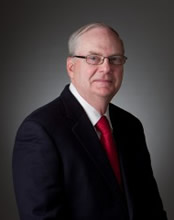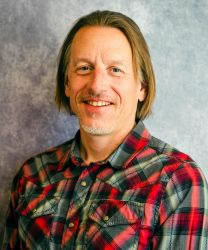When I was a boy, playing in the sandbox or building with blocks, I dreamed of building cities. I feel fortunate to be in a profession which allows me to fulfill that dream. To enjoy your job is a more important measure of success than the amount of money in your bank account. My favorite definition of success is borrowed from Ann Landers:
- To laugh often and love much
- To win the respect of intelligent persons and the affection of children
- To earn the approval of honest critics and endure the betrayal of false friends
- To appreciate beauty
- To find the best in others
- To give of one's self without the slightest thought of return
- To have accomplished a task, whether by a healthy child, a rescued soul, a garden patch, or a redeemed social condition
- To have played and laughed with enthusiasm and sung with exultation
- To know that even one life has been made easier because you have lived
Civil engineers are the builders of the world. To be effective as builders, we need to define our role as broadly as possible. Civil engineers are mindful that in the broadest sense, they are serving people. It is the branch of engineering closest to the public and their government. In the transportation portion of the profession - the part with which I am most familiar - we have defined our role as promoting the safe and efficient movement of people and goods. Everything we do must be measured against that standard. That means that we have to be involved in more than just signs, signals, and pavement markings. It also means that we must be involved in a broad range of activities not traditionally associated with engineering (Public relations, budgeting, etc.)
Engineers like to handle things, touch them, put them in order, get them organized so they work right, count them and stack them up (make sure they are all there), and to do all of this efficiently. All of this is good in itself and vital to your success as an engineer - but these valuable characteristics and abilities should come with a broad viewpoint so that your objective does not become so narrow. The skills required to be a successful engineer go beyond engineering analysis. Skills in communication and knowledge of politics, psychology, management, and salesmanship are also required. The successful engineer must develop his professional artistry.
In his book, "The Reflective Practitioner," Donald Schon, Ford professor of urban studies and education at M.I.T. examines five professions - engineering, architecture, management, psychotherapy, and town planning - to show that most professionals "know more than they can say"; that to meet the unpredictable situations of their daily work, professionals rely less on formulas learned in graduate school than a kind of improvisation learned in practice.
The improvisation, or professional artistry, that Schon is talking about is akin to what baseball pitchers call "finding the groove," and jazz musicians call "getting a feel" for the music. We are accustomed to thinking of professionals, especially engineers and other science-based ones, as holders of technical skills and specific knowledge. Schon indicates that the essence of professional knowledge is the ability to, as he puts it, "reflect in action".
Just as a skilled tennis player learns to plan the next shot in the split second between exchanges, so, too, do professionals constantly reflect as they take action is their daily work. Schon's point is that this creative ability is vital to the individual professional's success and to their collective value to society. Moreover, it is a definable process that can and should be taught and encouraged in schools, business, and government settings - something that happens only rarely now.
This kind of reflection, wherein professionals evaluate and readjust their frame of reference and their view of a problem, is for the most part ignored today in university study in favor of stressing technical skills. Yet this ability is needed more than ever in the professional world. Engineers, for example, are today confronted with an unprecedented "requirement for adaptability". The dilemma of the professional today lies in the fact that both ends of the gap he is expected to bridge with his profession are changing rapidly; the body of knowledge he must use and the expectations of the society he must serve.
I am proud to be a civil engineer - one of those people servers who get to fulfill his dream of building a city while serving his fellow man. Being a civil engineer is even more fun than I thought it would be when I was in college. I believe it is important for engineers to define their objectives as broadly as possible and to strive to develop professional artistry.
Richard F. Beaubien, PE, PTOE is a Professional Traffic Operations Engineer and Managing Director at Beaubien Engineering. He was previously Transportation Department Head at Hubbell, Roth & Clark, Consulting Engineers for more than 23 years. Mr. Beaubien's employment experience includes 5 years as a highway engineer with the Federal Highway Administration and 14 years as the traffic engineer for the City of Troy, Michigan.
©Copyright - All Rights Reserved
DO NOT REPRODUCE WITHOUT WRITTEN PERMISSION BY AUTHOR.











